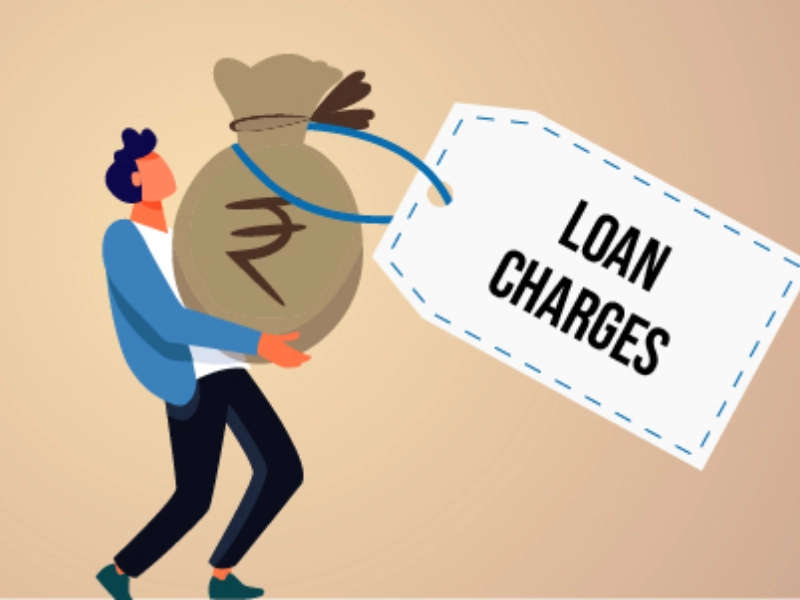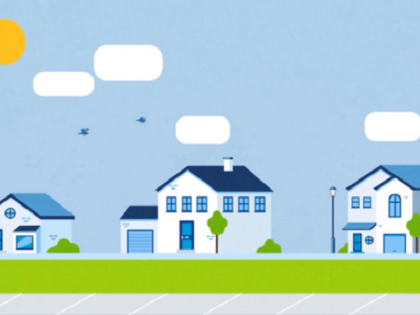Developing Your Financial Potential: Getting Past Mortgage Obstacles
Unlocking Your Financial Potential: Overcoming Obstacles with Mortgages is a thorough manual designed to assist people in reaching their goals and growing their finances. Goal-setting, budgeting, saving, prudent investment, utilizing technology, handling debt, and embracing entrepreneurship are just a few of the subjects covered in this guide. Due to the low housing inventory, one of the main challenges facing homeowners is locating a suitable place to call home. It's critical to get into the habit of budgeting and use a mobile app like FirstBank Money Manager to keep tabs on income and expenses in order to overcome this obstacle.
1. Obtaining credit

2. Purchasing a House
 With a mortgage, people can buy homes by financing the remaining amount from a lender after paying a percentage of the total cost up front. Prospective borrowers must fulfill specific eligibility conditions and go through a rigorous application and underwriting process. To maintain their mortgage payments, they need to have enough income in relation to their assets and debt. To be eligible for a mortgage, they also need to have a strong credit history, regular on-time payments, and excellent credit scores.
As early as possible, potential buyers should begin saving for a down payment in order to lower the cost of buying a property. To make an even more attractive offer, they ought to apply for mortgage preapproval as well.
Taking out a mortgage is a significant commitment. Moreover, owning a home makes moving more challenging. Take your family responsibilities and professional aspirations into account if you're thinking of taking out a 30-year loan to make sure you're a homeowner. Additionally, you can refinance to modify the conditions of your loan to meet your financial objectives, including debt consolidation or interest rate reduction.
With a mortgage, people can buy homes by financing the remaining amount from a lender after paying a percentage of the total cost up front. Prospective borrowers must fulfill specific eligibility conditions and go through a rigorous application and underwriting process. To maintain their mortgage payments, they need to have enough income in relation to their assets and debt. To be eligible for a mortgage, they also need to have a strong credit history, regular on-time payments, and excellent credit scores.
As early as possible, potential buyers should begin saving for a down payment in order to lower the cost of buying a property. To make an even more attractive offer, they ought to apply for mortgage preapproval as well.
Taking out a mortgage is a significant commitment. Moreover, owning a home makes moving more challenging. Take your family responsibilities and professional aspirations into account if you're thinking of taking out a 30-year loan to make sure you're a homeowner. Additionally, you can refinance to modify the conditions of your loan to meet your financial objectives, including debt consolidation or interest rate reduction.
3. Finance Refinancing
 A great way to cut your interest rate and mortgage payment each month and gain access to home equity is to refinance your mortgage. Refinancing does provide advantages, but there are also upfront and ongoing expenditures that need to be considered. Refinancing may also alter the length of your loan and have an effect on your credit score. Before beginning the procedure, it's crucial to evaluate your objectives because there are numerous reasons why you could wish to refinance. Getting cash out, consolidating debt, cutting your interest rate, and lowering your monthly payment are a few of them.
Make sure your credit is in excellent standing before refinancing, as the lender may conduct a rigorous inquiry that may result in a brief decrease in your credit score. To improve your credit score, it's also a good idea to pay off any outstanding debt on your credit cards and refrain from applying for new ones. Additionally, keep in mind that prepayment penalties might apply to some mortgages. With government-backed loans, such as FHA and VA mortgages, this is frequently the case.
A great way to cut your interest rate and mortgage payment each month and gain access to home equity is to refinance your mortgage. Refinancing does provide advantages, but there are also upfront and ongoing expenditures that need to be considered. Refinancing may also alter the length of your loan and have an effect on your credit score. Before beginning the procedure, it's crucial to evaluate your objectives because there are numerous reasons why you could wish to refinance. Getting cash out, consolidating debt, cutting your interest rate, and lowering your monthly payment are a few of them.
Make sure your credit is in excellent standing before refinancing, as the lender may conduct a rigorous inquiry that may result in a brief decrease in your credit score. To improve your credit score, it's also a good idea to pay off any outstanding debt on your credit cards and refrain from applying for new ones. Additionally, keep in mind that prepayment penalties might apply to some mortgages. With government-backed loans, such as FHA and VA mortgages, this is frequently the case.
4. Handling Student Loans
 For many Americans, debt is a significant barrier that makes it more challenging to save money or buy a property. Additionally, research indicates that student debt deters individuals from pursuing advanced degrees, which may distort judgments on future education. It also lessens their likelihood of selecting positions in public service, which lessens their influence on the neighborhood and economy.
Making a budget is the first step toward taking little actions toward debt relief. List your fixed costs first, such as rent, utilities, and phone/cable bills. Then, include your discretionary spending, such as travel, dining out, and entertainment. Your disposable expenditure is the amount that remains after deducting your fixed expenses from your income.
Next, think about refinancing or loan consolidation as ways to lower your interest rate. However, use caution since consolidating your debts may result in the loss of important perks such as PSLF or loan forgiveness. Additionally, make sure to pay the least amount due each month. If at all possible, try to raise your payments to reduce your principal balance more quickly and avoid paying interest.
For many Americans, debt is a significant barrier that makes it more challenging to save money or buy a property. Additionally, research indicates that student debt deters individuals from pursuing advanced degrees, which may distort judgments on future education. It also lessens their likelihood of selecting positions in public service, which lessens their influence on the neighborhood and economy.
Making a budget is the first step toward taking little actions toward debt relief. List your fixed costs first, such as rent, utilities, and phone/cable bills. Then, include your discretionary spending, such as travel, dining out, and entertainment. Your disposable expenditure is the amount that remains after deducting your fixed expenses from your income.
Next, think about refinancing or loan consolidation as ways to lower your interest rate. However, use caution since consolidating your debts may result in the loss of important perks such as PSLF or loan forgiveness. Additionally, make sure to pay the least amount due each month. If at all possible, try to raise your payments to reduce your principal balance more quickly and avoid paying interest.








